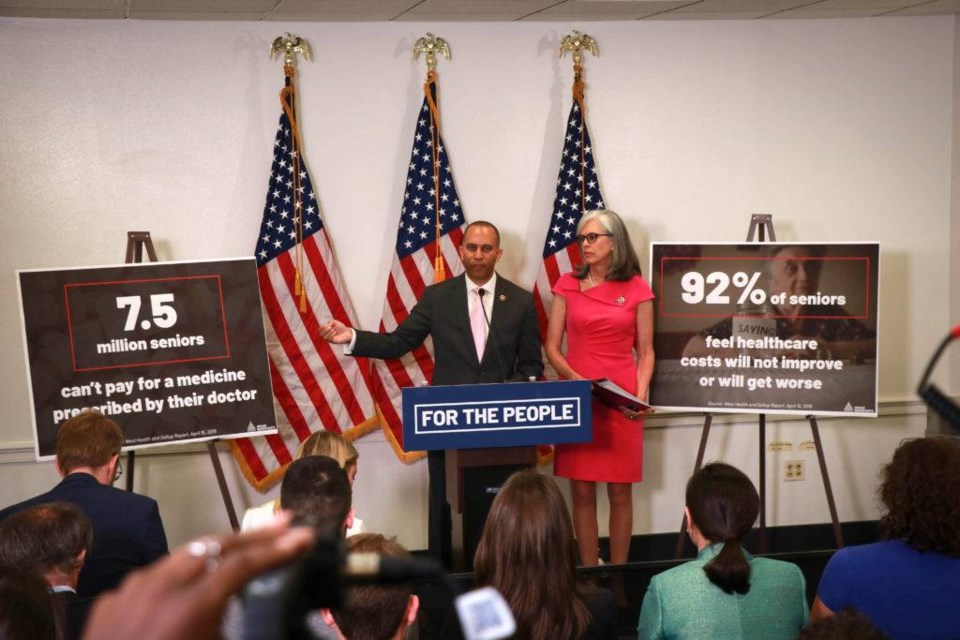In an effort to tackle the rising costs for prescription drug prices, Brooklyn Congressman Hakeem Jeffries (NY-08) introduced legislation on Tuesday that would prevent pharmaceutical companies to exploit the exclusivity rights of their drugs and instead allow generic, more affordable products to reach the market faster.
Dubbed the "Terminating the Extension of Rights Misappropriated" (TERM) Act of 2019, the bipartisan bill was co-sponsored by Democratic Congressmember Debbie Mucarsel-Powell (FL-26), and Republican Congressmembers Doug Collins (GA-09) and Ben Cline (VA-06). The legislation aims to limit drug patent abuses and close loopholes such as "evergreening," a process whereby pharmaceutical companies make minor changes to a drug and subsequently file for a new patent to maximize their monopoly.
"In the United States of America, access to high quality, affordable health care should be a right, not a privilege," said Jeffries. "The bipartisan TERM Act will curb patent abuses in order to expedite the entrance of lower-cost generic drugs to market. It is time for us to put people over profits."
Under the existing patent statute, generic drug manufacturers must prove why a new patent should not be granted on existing medication. This process adds significant costs to generic manufacturers and slows the ability of lower-cost drugs to be released. The TERM Act shifts that burden of proof to pharmaceutical companies, who would have to reasonably demonstrate why changes to a drug qualify it for a new patent.
Republican Rep. Collins emphasized the benefits of competition in the pharmaceutical market, which will decrease costs and increase options for patients, he said.
"Pharmaceutical companies are great innovators that create life-saving cures and treatments for families everywhere," said Collins. "Unfortunately, some manufacturers simply file additional patents in order to delay generic drugs from coming to market. The TERM Act will make it easier and fairer for generic pharmaceutical companies to challenge trivial patents, which ultimately means that patients get access to more drug options faster."
Currently, prescription drug expenses constitute nearly 20 percent of health care costs and are growing faster than any other health care expenditures. As of 2017, Americans spend more on prescription drugs — average costs are about $1,200 per person per year — than anyone else in the world.




